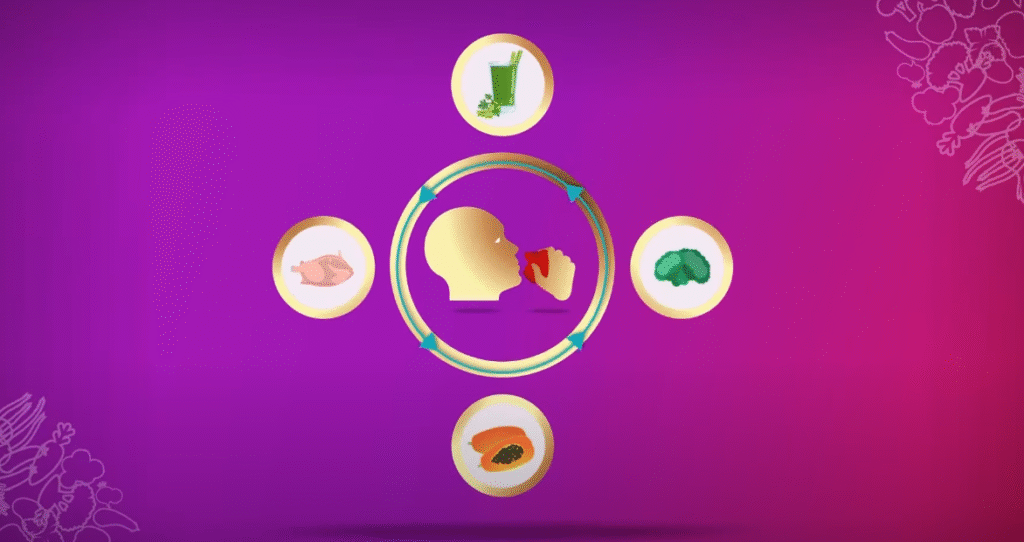The Role of Nutrition in Boosting Mental Health
Mental health is just as important as physical health. Many people focus on exercise and medication when they feel stressed or low, but they often forget the role of food. What we eat every day has a direct effect on our mood, memory, focus, and overall mental well-being. A healthy diet can improve energy, reduce stress, and even lower the risk of depression.
In this article, we will explore the link between nutrition and mental health, the best foods for boosting mood, and simple lifestyle tips that anyone can follow.
Why Nutrition Matters: The Brain–Gut Connection
Have you ever felt “butterflies” in your stomach when you were nervous? This happens because your brain and gut are closely connected. Scientists call this the brain–gut connection.
The gut has millions of nerve cells and bacteria that communicate with the brain. When we eat healthy foods, our gut produces chemicals like serotonin and dopamine, often called the “happy hormones.” These chemicals play a big role in controlling mood, focus, and sleep.
On the other hand, unhealthy foods can upset this balance, leading to mood swings, tiredness, and poor concentration. That’s why nutrition is not only about the body—it directly affects the mind too.
Foods That Boost Mood and Focus
1. Omega-3 Fatty Acids
Omega-3s are healthy fats found in fish like salmon, sardines, and mackerel. They support brain function, reduce inflammation, and improve memory. People who eat omega-3-rich foods often feel calmer and less anxious.
2. Leafy Green Vegetables
Spinach, kale, and other leafy greens are packed with vitamins, minerals, and antioxidants. They protect brain cells from damage and give a steady supply of energy. Eating greens regularly can improve alertness and reduce stress.
3. Nuts and Seeds
Almonds, walnuts, chia seeds, and flaxseeds are full of healthy fats and magnesium. Magnesium helps reduce feelings of anxiety and supports better sleep. Nuts are also a quick snack that boosts mood during busy days.
4. Whole Grains
Brown rice, oats, and whole wheat bread release energy slowly, keeping blood sugar stable. This prevents mood swings and helps you stay focused for longer periods. Whole grains also provide B vitamins, which are linked to better brain function.
5. Fruits and Berries
Blueberries, oranges, bananas, and apples are not only delicious but also full of natural vitamins and fiber. They reduce inflammation and provide antioxidants that protect the brain. Eating fruits regularly can lift mood and increase mental clarity.
Foods to Avoid for Better Mental Health
1. Processed Sugar
Sugary drinks, cakes, and candy may give a quick energy boost, but the crash that follows can leave you feeling tired and irritable. Too much sugar is also linked to anxiety and depression.
2. Junk Food
Fast food, chips, and fried items are high in unhealthy fats and salt. They can make the brain sluggish and reduce concentration. Regular intake of junk food may also increase stress levels.
3. Too Much Caffeine
Coffee and energy drinks give short-term alertness but too much caffeine can lead to restlessness, poor sleep, and anxiety. One or two cups a day is fine, but balance is important.
Lifestyle Tips for Better Mental Well-being
1. Eat Balanced Meals
Try to include protein, healthy fats, and complex carbohydrates in every meal. This gives your body steady energy and keeps your mind sharp.
2. Stay Hydrated
Dehydration can cause headaches, fatigue, and poor concentration. Drinking enough water each day keeps your brain working at its best.
3. Maintain Regular Eating Times
Skipping meals can lower blood sugar, which affects mood and focus. Eating at the same times daily helps maintain balance in both body and mind.
4. Limit Alcohol
Alcohol may make you feel relaxed for a short while, but it often disrupts sleep and lowers mood. Limiting alcohol intake helps your brain stay clear and focused.
5. Combine Diet with Exercise and Sleep
Food is powerful, but it works best when combined with regular physical activity and proper rest. Exercise releases endorphins (happy hormones), and good sleep allows the brain to recover.
Conclusion
Nutrition plays a major role in mental health. Eating the right foods can reduce stress, improve focus, and boost overall mood. Omega-3s, leafy greens, nuts, whole grains, and fruits are all brain-friendly choices, while processed sugar, junk food, and excess caffeine can have negative effects.
By making small but consistent changes in diet and lifestyle, anyone can take steps toward better mental well-being. Remember, what you put on your plate today can shape how you think and feel tomorrow.
FAQs
Q1: Can food really improve mental health?
Yes, healthy foods can improve brain function, reduce stress, and support better mood balance.
Q2: What is the best food for reducing anxiety?
Foods rich in omega-3s (like salmon) and magnesium (like nuts and seeds) help reduce anxiety.
Q3: Can skipping meals affect mood?
Yes, skipping meals lowers blood sugar and can lead to irritability, tiredness, and poor focus.
Q4: Should I completely avoid coffee for better mental health?
Not necessarily. One or two cups of coffee a day are fine, but too much can increase anxiety.
Q5: How can I start eating healthier for mental well-being?
Begin with small changes: add more vegetables, drink enough water, cut down on sugar, and eat at regular times.


